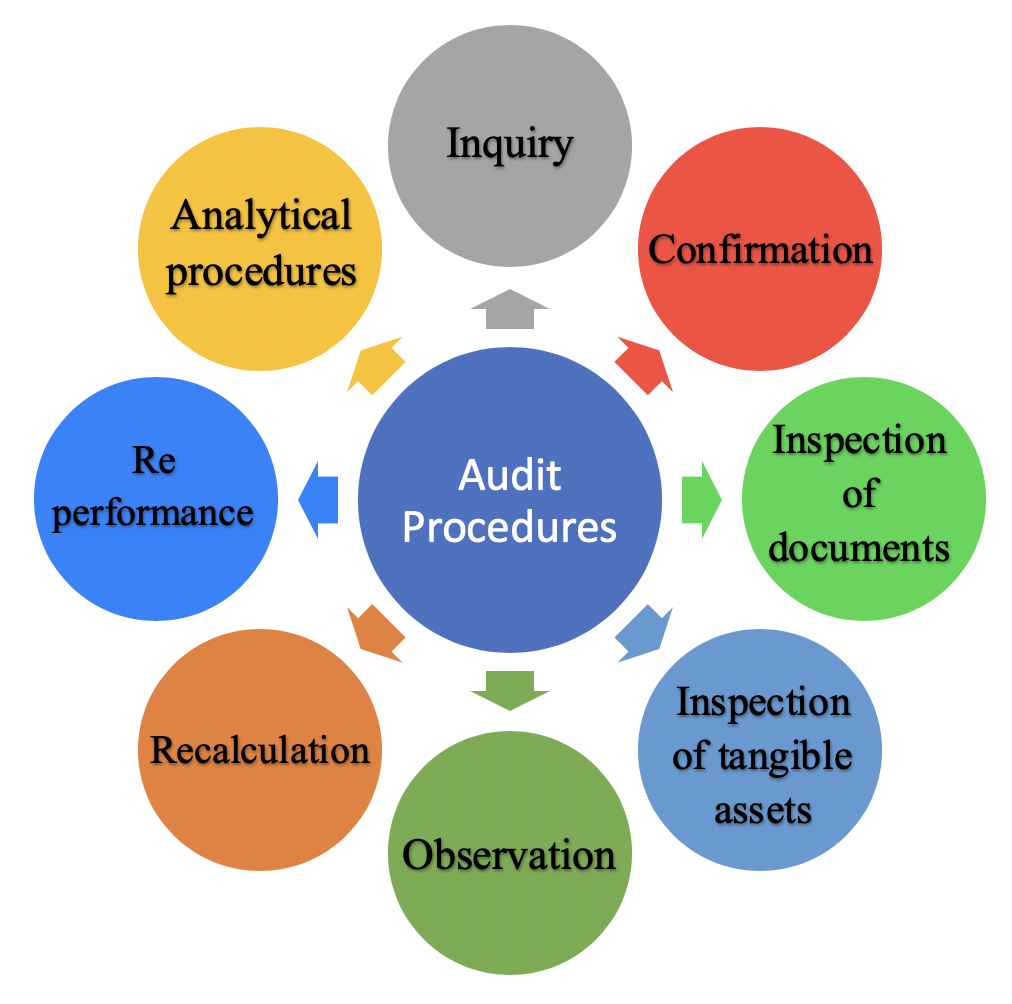Calculating projected uncorrected misstatements estimated through audit sampling techniques. Performing analytical procedures results in the most reliable form of evidence.

Cpa Exam Aud Study Question Ninja Cpa Review Cpa Exam What To Study Cpa Exam Aud
Analytical procedures are one of many financial audit processes which help an auditor understands the clients business and changes in the business and to identify potential risk areas to plan other audit procedures.

. Which of the following is not an analytical procedure. Tap card to see definition. Typically five types of audit procedures normally use by auditors to obtain audit evidence.
Analytical procedures performed to assist in forming an overall conclusion suggest that several accounts have unexpected relationships. What are the five major types of analytical procedures in auditing. Analytical procedures are tests of controls used to evaluate the quality of a clients internal control.
Tracing of purchases recurred in the purchase book to purchase invoices. Projecting the deviation rate of a statistical sample to the population. It includes comparison of financial information with 1.
Click card to see definition. Tap again to see term. The results of these procedures most likely indicate that Additional audit procedures are required.
Testing purchasing shipping and receiving cutoff activities. Matching sales invoices to shipping documents. Separately obtain an understanding of how IT affects the flow of transactions.
Which of the following is not an analytical procedure. Considering the adequacy of the evidence gathered in response to unexpected balances identified in planning. Perform analytical procedures to determine whether management responses to probing questions are reasonable.
Which of the following would be considered an analytical procedure. Analytical procedures are tests of controls used to evaluate the quality of a clients internal controlb. For all audits of financial statements made in accordance with AAS-1 4 the use of analytical procedure is at the discretion of.
Analytical procedures may be helpful in identifying the existence of unusual transactions or events and amounts ratios and trends that might indicate matters that have financial statement and audit implications all of which are from routine transactions of the auditee. Likewise substantive analytical procedures are the audit procedures that auditors perform to obtain evidence about the reasonableness of amounts shown in the financial statements by using such plausible relationships among data. N auditor is performing an analytical procedure that involves comparing a clients ratios with other companies in the same industry.
Those five audit procedures include Analytical review inquiry observation inspection and recalculation. This technique is referred to as. Analytical procedures are used for planning but they should not be used to obtain evidence as to the reasonableness of specific account.
Information related to the understanding of internal control d. Reconciling physical counts to perpetual records and general ledger balances. Comparing inventory balances to recent sales activities.
Copies of articles of incorporation by laws and contracts c. What is the primary objective of analytical procedures used in the overall review stage of an audit. Performing analytical procedures results in the most reliable form of evidence.
The most common analytical procedure is the calculation of various. In performing analytical procedures as risk assessment procedures the auditor develops. Click again to see term.
Prepare for the walkthrough which may include using whiteboarding techniques. When applying analytical procedures an auditor could develop independent estimate of an account balance to compare it. Which of the following is an analytical procedure.
Making inquiries of client management. Analytical procedure is the process of analyzing plausible relationships among data including both financial and non-financial data. Analytical procedures are the processes of evaluating financial information through.
Analytical procedures performed in the final review stage of an audit generally would include. Inspect the trail of documents and evidence to understand the process. Which of the following is true about analytical procedures.
The permanent files included in the audit documentation includes all but which of the following a. Analytical procedures are audit procedures that involve evaluating relationships between financial and nonfinancial information. Analytical procedures are used in risk assessment as a substantive procedure for specific accounts and near the completion of the audit of the audited financial statementsd.
Results of analytical procedures from prior years. Comparing current-year balances to prior-year balances. A copy of the current and prior years audit programs b.

Steps For Analytical Method Development Pharmaceutical Guidelines

0 Comments